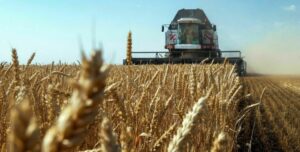
Agriculture and Rural Development Minister Robert Telusz has assured the Sejm that the ban on imports of Ukrainian grain to Poland will continue after September 15, polskieradio.pl reported.
“Prime Minister Mateusz Morawiecki and Polish Deputy Prime Minister Jaroslaw Kaczynski made it clear: Ukrainian grain will not enter Poland after September 15. We will protect Polish agriculture,” Telusz said.
In mid-September, the ban on imports of wheat, corn, sunflower seeds and rapeseed from Ukraine to Poland, Slovakia, Bulgaria, Romania and Hungary will expire.
Five of Ukraine’s neighboring countries are in favor of extending the ban at least until the end of the year.
Polish Prime Minister Mateusz Morawiecki said that Poland would maintain the existing ban even without the consent of the European Commission.
As reported, Ukrainian Prime Minister Denys Shmygal considers Poland’s intention to continue blocking the export of Ukrainian grain amid Russia’s aggression as “an unfriendly and populist step” that “will hit the world food security and Ukraine’s economy hard”. He called on the European Commission to ensure unimpeded export of Ukrainian food to the EU.
In her turn, First Deputy Prime Minister and Economics and Trade Minister Yuliya Sviridenko admitted that Ukraine might introduce mirror measures against some products from Poland.
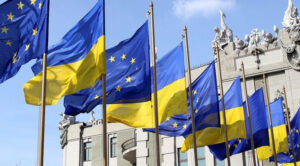
The European Union has fully exempted imports of agricultural products from Moldova from duties and quotas, extending and expanding the current temporary preferential treatment.
“The extension and expansion of the (preferential) measures aims to further expand the existing trade flows from Moldova to the EU, and this will support the Moldovan economy,” said Hector Gomez Hernandez – Minister of Industry, Trade and Tourism of Spain, which holds the presidency of the Council of the EU until the end of the year.
He emphasized that Thursday’s EU Council decision is particularly important given the ongoing military actions in Ukraine, as well as the fact that Moldova was granted EU candidate status a year ago.
Trade between the EU and Moldova is mostly liberalized under the 2014 Association Agreement. Duties were imposed on imports of only seven products to the EU: plums, table grapes, apples, tomatoes, garlic, cherries and grape juice. Introduced a year ago and valid until July 24, the preferential regime provides duty-free quotas for these products. The current decision suspends all remaining tariff rate quotas (TRQs) for one year.
The preferential treatment of imports from Moldova of the said products will entail a loss of EU customs revenues, but it will amount to about 0.3 million euros per year, so its impact on the Union budget will be “very limited,” the press release said.
The measures are expected to help Moldova further reorient its exports to the EU. Overall, its volume is set to increase from €1.8 billion in 2021 to €2.6 billion in 2022.
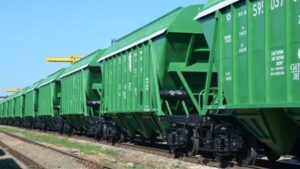
Moldovan Railways has agreed to grant a discount of 27% to the existing tariffs for transit transportation of Ukrainian agricultural products through the territory of the Republic of Moldova in the direction of the ports of Reni, Giurgiulesti and Galati, the press service of the Ministry of Agrarian Policy and Food reported.
Minister of Agrarian Policy and Food of Ukraine Mykola Solskiy, Minister of Agriculture and Food Industry of the Republic of Moldova Volodymyr Bolia and the head of the Moldovan railroad agreed on the discount at an online meeting. The meeting was attended by representatives of Ukrzaliznytsia JSC.
According to the message, tariff conditions for transit cargoes will be calculated as a discount to the base tariffs if all forwarding organizations comply with transportation volumes.
For recalculation of the tariff it will be necessary to fulfill one of two conditions – to produce the established volume of cargo transportation for the month or to keep the average monthly volume of transported cargo for the last three months at a level that exceeds or corresponds to the established volume of cargo transportation for the month.
The new tariff conditions will take effect on July 15, 2023.
You can familiarize yourself with the size of the tariff coefficients here:
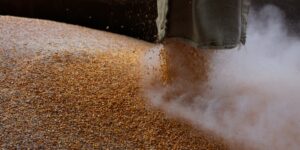
The Joint Coordination Center (JCC) has resumed inspections of vessels coming from Ukraine with agricultural products within the framework of the Black Sea Grain Initiative, Sabah reported on Tuesday.
The relevant information earlier became known to the Turkish media from the Ministry of Defense of Turkey.
As the newspaper recalls, the day before, the UN said that on Sunday and Monday there were no inspections of ships.
Meanwhile, the Turkish Defense Ministry confirmed that Turkey, Ukraine, Russia and the UN will hold talks on the “grain initiative” on May 10-11.
Earlier, the Ukrainian Defense Ministry said that on May 8, Russia again blocked the work of the Grain Initiative, refusing to register vessels for entry and conduct inspections. According to the ministry, 90 vessels are awaiting inspection in Turkish territorial waters, of which 62 are vessels going in for loading. Inspections of both incoming and outgoing ships are suspended. Export of Ukrainian agro-products via the “grain corridor” did not even reach 3 million tons in April.
“Black Sea Grain Initiative” was concluded in Istanbul on July 22, 2022 with the participation of the UN, Ukraine, Turkey and Russia to create a corridor for the export of grain from three Ukrainian ports: “Chernomorsk”, “Odessa” and “Pivdenny”. The initiative was concluded for 120 days and was extended twice, most recently on March 18. However, while Ukraine claims it was extended for 120 days, Russia claims it was only for 60.
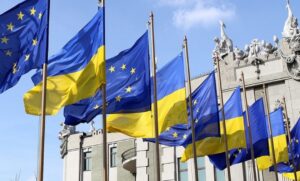
European Commission Executive Vice President Valdis Dombrovskis says the European Commission has reached agreements in principle with Bulgaria, Hungary, Poland, Romania and Slovakia on the export of Ukrainian agricultural products.
“There are agreements,” he wrote in capital letters on his Twitter page Friday.
Dombrovskis said the European Commission reached “an agreement in principle with Bulgaria, Hungary, Poland, Romania and Slovakia regarding Ukrainian agri-food products.” “Together with Janusz Wojciechowski (European Commissioner for Agriculture) we have taken measures to solve the problems of both farmers in neighboring EU countries and in Ukraine,” he wrote.
The Vice President also named the key elements of the deal, which were also agreed with Ukraine. These elements include the removal of unilateral measures by Poland, Slovakia, Bulgaria and Hungary. Then there are “exceptional safeguard measures for 4 products: wheat, corn, rapeseed, sunflower seeds and a support package of 100 million euros for affected farmers in 5 member states.
In addition, Dombrovskis reported on the investigation of some other products, including sunflower oil.
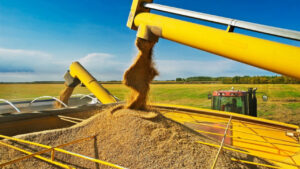
Agro-industrial holding Astarta does not expect a significant drop in income because of the ban on imports of agricultural products from Ukraine imposed by Poland and other neighboring countries, as it intends to export its products to Western European countries, representatives of the company’s board said at an online conference on Tuesday.
“We have permission to transit through these countries. Rather, our export targets are Western European countries, such as Spain, Italy, Greece and Croatia. We don’t see much risk to our revenues,” Infostrefa quoted Astarta Commercial Director Vyacheslav Chuk as saying from a conference call Tuesday.
Julia Bereshchenko, director of investor relations, expressed confidence that Astarta will be supported by expected sugar shortages in the EU and world market.
“Sugar shortages are expected not only in the EU, but worldwide as the world’s largest sugar producers, such as Brazil and India, begin to use sugar to produce ethanol. This could potentially reduce these countries’ exports,” she said.
As reported, Astarta agro-industrial holding, the largest sugar producer in Ukraine, received EUR65.16 million net profit in 2022, down 46.8% compared to 201.
The holding’s EBITDA shrank by 23.2% to EUR154.77 mln, while revenues increased by 3.8% to EUR510.07 mln.